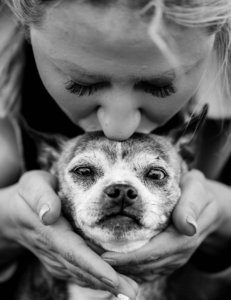
 As our loyal companions grow older, the process of ageing can bring a unique set of challenges and concerns. Understanding the science behind canine ageing and implementing strategies to ensure a high quality of life can help your senior dog enjoy their golden years to the fullest.
As our loyal companions grow older, the process of ageing can bring a unique set of challenges and concerns. Understanding the science behind canine ageing and implementing strategies to ensure a high quality of life can help your senior dog enjoy their golden years to the fullest.
Dogs age at a faster rate than humans, but the rate of ageing varies significantly among breeds. Small breeds often live longer than large breeds, with many small dogs enjoying life well into their teens, while larger dogs may experience senior health issues by the age of 6 or 7. This difference is partly due to the strain that large bodies put on a dog’s physiological systems, leading to earlier onset of age-related diseases.
As dogs age, they are prone to several health issues, much like humans. Some of the most common include:
Joint Problems: Conditions like arthritis are prevalent in older dogs, causing pain and reducing mobility.
Dental Health: Dental disease can significantly affect a dog’s overall health, causing pain and risking serious infections.
Obesity: Weight gain in senior dogs is a common problem that can exacerbate health issues like diabetes and heart disease.
Sensory Decline: Ageing dogs often experience declines in vision and hearing, which can affect their behaviour and interaction with their environment.
Cognitive Dysfunction: Similar to Alzheimer’s in humans, older dogs can suffer from cognitive dysfunction, impacting their memory, perception, and behaviour.
 Tips for Helping Your Dog Age Gracefully
Tips for Helping Your Dog Age Gracefully
Regular Veterinary Visits:
Schedule regular check-ups with your veterinarian. As dogs age, they require more frequent health screenings to manage any emerging health issues proactively.
Appropriate Diet:
Senior dogs have different nutritional needs. Foods that are specially formulated for senior dogs can help manage weight and provide the nutrients needed to maintain health. Supplements like glucosamine can aid joint health, while omega fatty acids can help keep their coat healthy.
Exercise:
Keeping your dog active is crucial for maintaining a healthy weight and supporting joint health. Tailor exercise to your dog’s ability; shorter, more frequent walks can be beneficial for older dogs.
Dental Care:
Continue to maintain your dog’s dental hygiene with regular brushing and vet-approved dental chews. Professional cleanings may be necessary to maintain dental health.
Comfortable Living Environment:
Make your home more senior-dog-friendly. Consider providing orthopaedic dog beds to support arthritic joints and use ramps or stairs to help your dog navigate furniture and vehicles if they struggle with jumping.
Mental Stimulation:
Keep your dog mentally sharp with interactive toys and puzzles that challenge their brain. Training sessions can also keep their mind engaged.
Monitoring and Adaptation:
Keep an eye on your dog’s behaviour and physical condition. Adjustments in routine or additional medical care might be needed as they continue to age.
 Quality Time:
Quality Time:
Perhaps most importantly, spend quality time with your ageing dog. Comfort and reassurance from their favourite human can significantly enhance their quality of life.
…
While ageing is an inevitable part of life, our approach can make a significant difference in how gracefully our pets age. By understanding the challenges and adjusting care accordingly, we can help ensure that our senior dogs live their twilight years with dignity, comfort, and joy. Remember, the goal is not merely to extend their life but to enrich the quality of the life they have left.